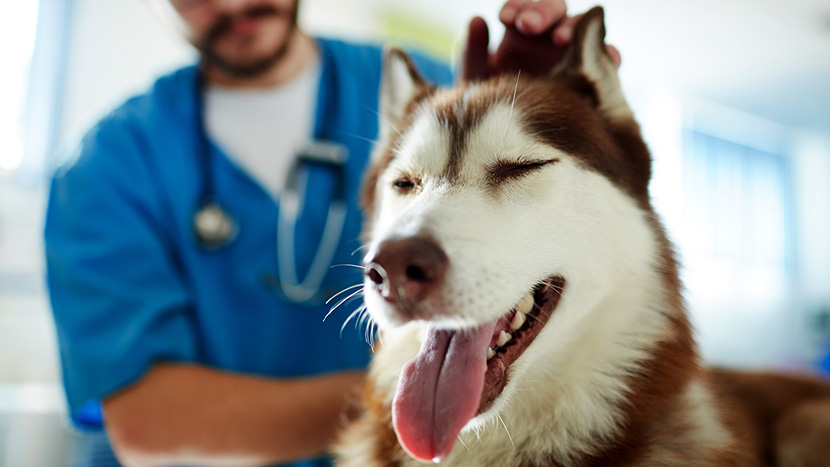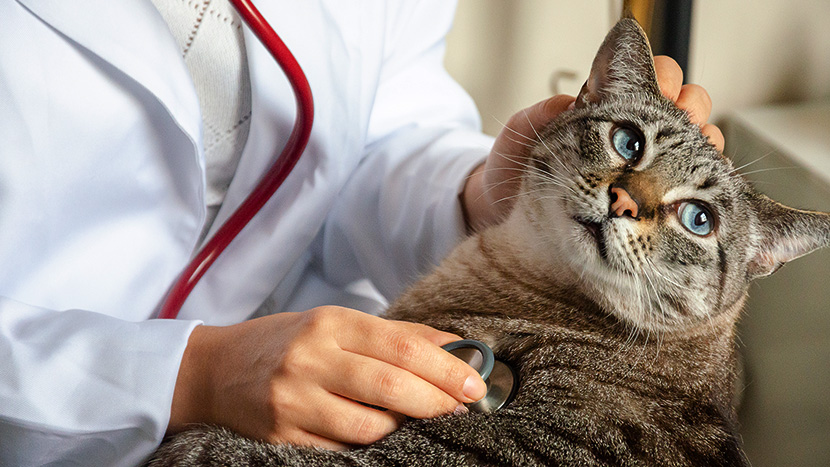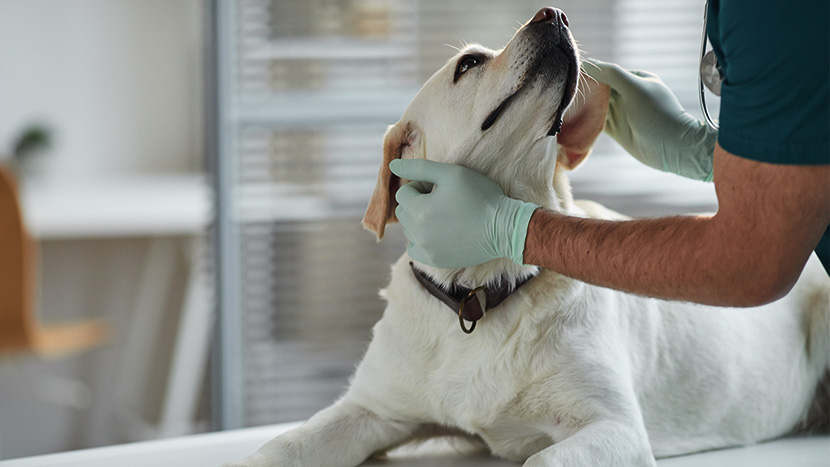How Basic Biology and Pet Preventive Care Keep Your Pet Healthier
Everyone wants their pets to live long, happy, and healthy lives. The good news is that new research in pet medicine makes for better animal healthcare every day. Now, although health issues are often unpredictable, and not all pet disease processes are in a pet owner’s hands, there are still some measures you can take to keep your pet healthy. Preventing health problems before they happen by understanding the biology of your animal is your best option, so let’s talk about what pet preventive care guidelines you should follow as a loving pet owner.
Pet Preventive Care Meaning
Preventive care refers to a set of measures that you and your veterinarian take to monitor your pet’s health and reveal potential issues at early stages. This includes anything that helps you keep track of your pet’s state of health and avoid unwanted or life-threatening diseases. Many people think that preventative care is only about taking your pet to a vet clinic for annual vaccination and using parasite prevention. But in fact, the concept is much broader and includes a whole set of specific procedures.
What Are Preventive Pet Healthcare Guidelines?
Even if your pet seems to feel good, it doesn’t necessarily mean that they have no health problems. This statement lies at the heart of recommendations offered by the American Animal Hospital Association (AAHA) and the American Veterinary Medical Association (AVMA).
Based on the medical information gathered from multiple specialty groups, such as the Companion Animal Parasite Council, American Heartworm Society, and others, they developed the Canine Preventive Healthcare Guidelines (CPHG) that standardizes veterinary care for dogs and cats. Below are the key CPHG’s routine care recommendations that will contribute to your pet’s health and early detection of some diseases.
Anamnesis of Your Pet’s Home Life
History taking is the first thing that your veterinarian should do when you visit them. Often pets’ health problems are expressed in the way they behave in daily life. These can be the things that you may not even pay attention to on a day-to-day basis. That is why your doctor will ask you questions and record your answers. This will help them track the dynamics and identify possible changes. The most frequently asked ones include questions about your pet’s appetite and regularity of bowel movements, whether they strain to urinate, seem short of breath, cough, or sneeze, how much water they drink, and others. Animals may express a problem in one part of the body with symptoms that may seem unrelated, but that is because all our body’s systems are connected.
Check-ups and Annual Vet Exams
As your pet can’t tell you if they suddenly feel bad or just different, let your veterinarian find it out through thorough physical examinations. It’s recommended to do a check-up once or twice a year, even if your pet seems healthy. A physical wellness exam can help a doctor determine some deviations in heartbeats, joint pain, kidney disease, skin or abdominal tumors, and more. If some health issues are detected, your veterinarian will create a treatment plan and give you prescription medications.
Testing
Many people know that mosquitos are the deadliest animal for humans due to the parasites they carry, but did you know that they can also give harmful parasites to your pets? Even if you live in a cold environment where the risk of being bitten by an infected mosquito is minimal, your pet can still get heartworms. According to the American Heartworm Society‘s advice, you need to do heartworm blood tests for your cat or dog once a year. Heartworm disease can even be fatal, but luckily, there are some heartworm prevention measures. Besides testing, you need to give your pet heartworm-preventative medications year-round. This will help you avoid unwanted consequences such as caval syndrome, heart and lung damages, and even death.
Also, you should bring a stool sample annually or, more preferably, twice a year to determine whether your pet is affected by intestinal parasites. For pets living in areas with high tick activity, Lyme disease testing is also advised.
Spaying and Neutering
Spaying and neutering are not only about making your pet incapable of reproduction. This will help you stop your pet from compulsive sexual behavior and a few related behavioral and medical problems. After the surgery is done, your pet becomes less aggressive, stops marking in the house, and becomes unable to produce sex hormones. In turn, this can prevent some serious diseases, such as cancer, prostatitis, diseases of the ovaries, uterus, and mammary glands. Moreover, spaying and neutering helps to regulate animal populations, reducing the number of stray animals.
Vaccinations
Vaccine research over the last few years hasn’t just helped save many people’s lives, but also those of our pets! There are two types of vaccinations: core and optional. Core are those that are highly recommended for all pets regardless of their lifestyle unless there are some medical reasons not to vaccinate. This group of vaccines includes immunization for distemper, adenovirus, parvovirus, +/- parainfluenza, and rabies. Optional vaccinations are those that are of a recommendatory nature based on your pet’s breed or lifestyle. They can also be advised in specific regions with a higher probability of contracting certain diseases. Optional vaccination includes immunization for leptospira, kennel cough, borrelia burgdorferi, canine influenza virus-H3N8/H3N2, Lyme disease, and others.
Weight Maintenance
Having a healthy weight is quite important for your four-legged friend. Pets with obesity have more medical problems and typically live shorter lives. Also, obesity has a bad effect on the animal’s joints and the functioning of its internal organs, resulting in more health issues. If your veterinarian sees the threat of obesity, they may recommend a special diet or exercise for your pet.
Parasite Prevention
Parasite prevention includes heartworm preventative medications, flea and tick control, and other measures to keep your pet from being disturbed by other internal and external parasites. The most effective parasite prevention includes annual injections, topical applications, shampoos and sprays, tablets and chews, collars, and more.
Dental Care
As with humans, your pet’s oral wellness affects its quality of life and overall health. Animals with clean mouths live longer and happier lives. Keeping your pet’s oral health in good condition prevents tooth decay, along with the invasion of bacteria in your pet’s bloodstream. Cats and dogs may need teeth cleaning every one to two years. Between dental procedures, it is recommended to use special treats that help maintain oral wellness and prevent dental plaque.
Importance of Preventive Care for Pets and Pet Owners
All pet owners treat their four-legged friends as full-fledged family members. And we all want to spend as much time with them as possible. Luckily, our pets can now live longer and healthier lives thanks to modern technology. Preventative care is designed to help us maintain our pet’s health in good condition and determine various illnesses at early stages. By following simple recommendations, you contribute to your pet’s overall health and happiness.
Innovations in Preventive Veterinary Medicine
Preventive veterinary medicine keeps up with the times, so multiple innovations appear to help pet owners and veterinarians change pets’ lives for the better. Below are some great innovations that can change the game in the near future.
Fitness Trackers for Pets
While people are already using fitness trackers for themselves, their use in veterinary is not as common yet. But veterinarians are going to seize the opportunity. We already know many stories of how fitness trackers saved their owners’ lives by recording suspicious indicators or sending signals directly to rescue services. This practice can also be extremely helpful in preventive care for pets. Moreover, such trackers can send data directly to the veterinarian, giving them up-to-date info about the pet’s health on a daily basis.
Breed-Specific Genetic Tests
Breed-specific genetic testing will help you better understand your pet’s genetics and predisposition to certain diseases. This way, you will always be one step ahead by knowing what you need to prepare for in the future. Taking all the necessary measures before a disease manifests itself will help you avoid costly vet bills in the future and let your pet live a longer life.
Telemedicine
Telemedicine is an option that makes it possible to access some non-emergency veterinary services without visiting a vet clinic. There are a few virtual vets that operate nowadays, but their number tends to grow due to high demand. As more and more companies are capitalizing on digital technologies, pet owners can catch their pets’ health problems early, even if they have no opportunity to visit a physical clinic at the moment.
Stem Cell Therapies
Stem cell technology is still in its early stages but is already showing great results when it comes to regenerating damaged tissue. Cases of effective application of technology for the treatment of osteoarthritis in dogs are already known.
Financing Options for a Caring Pet Owner
When you decide to keep a pet, you need to be ready for it financially. However, life is unpredictable, as well as your pet’s health. Luckily, there are some options that can give you peace of mind and help you cover unexpected vet bills or treatment costs.
Pet Insurance
Pet insurance can give you peace of mind by providing accident and illness coverage for your furry friend. If you have a pet insurance policy, you can count on full or partial coverage of diagnostic or treatment costs, depending on the type of procedure carried out. Although pet insurance doesn’t cover all types of procedures, it can help you save money in the long run. All you need is to find an appropriate service provider and make monthly deposits in accordance with your insurance plan.
Vet Loans
Vet loans are just regular personal loans that an individual can get to cover costly vet bills. They allow you to get up to $50,000 and repay the funds within a certain period, usually up to 60 months. Vet loans are available through traditional financial institutions and online loan providers. Conventional lenders typically set strict credit score requirements, while online loan providers offer veterinary financing with no credit check, making it accessible for borrowers with bad credit. However, more lenient eligibility requirements result in higher interest rates.
Credit Cards
If you have a credit card, you can use it to pay for your vet costs without getting another loan. Some credit cards offer 0% APR promotional periods that allow you to pay no interest if you manage to turn the money back within a certain period, usually between 6 and 24 months. Additionally, there are credit cards designed specifically to cover medical expenses. Some of them partner with vet clinics and allow cardholders to pay for their pet’s treatment too.
In conclusion
Modern technology and research is helping us take better care of our furry family members. However, the best way to keep your pet healthy is to practice preventative measures, and talk to you vet about breed specific things to watch out for.



































































































